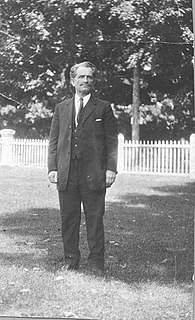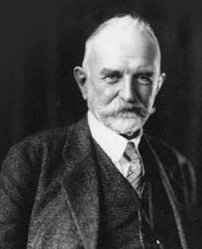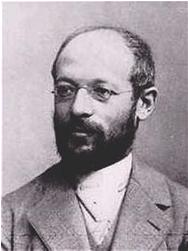A Quote by Boris Sidis
Psychology is the science of psychic states both as to content and form, regarded from an objective standpoint, and brought in relation to the living corporeal individual.
Quote Topics
Related Quotes
Subjective reason ... is inclined to abandon the fight with religion by setting up two different brackets, one for science and philosophy, and one for institutionalized mythology, thus recognizing both of them. For the philosophy of objective reason there is no such way out. Since it hold to the concept of objective truth, it must take a positive or a negative stand with regard to the content of established religion.
The laws of thermodynamics may be regarded as particular cases of more general laws, applicable to all such states of matter as constitute Energy , or the capacity to perform work, which more general laws form the basis of the science of energetics, a science comprehending, as special branches, the theories of motion, heat, light , electricity , and all other physical phenomena.
To us, the difference between the #? photographer as an individual eye and the photographer as an objective recorder seems fundamental, the difference often regarded, mistakenly, as separating photography as art from #? photography as document. But both are logical extensions of what photography means: note-taking on, potentially, everything in the world, from every possible angle.
We are living in a renaissance of personal writing. People are rebalancing the impersonalization endemic to modern society with an increase in personal introspection. We have enough common psychology under our belts to know that psychology doesn't explain or heal everything and that it isn't the fulfillment of awareness, but its beginning. We are undergoing a shift in paradigms in which we are trying to develop new models for humanness and human responsibility. This is no small task. Our individual lives are placed under increasing pressure to respond adequately to both inner and outer change.
The knowledge of the individual citizen is of less value than the knowledge of science. The former is the opinion of individuals. It is merely subjective and is excluded from policies. The latter is objective - defined by science and promulgated by expert spokesmen. This objective knowledge is viewed as a commodity which can be refined... and fed into a process, now called decision-making. This new mythology of governance by the manipulation of knowledge-stock inevitably erodes reliance on government by people.
In no other field of scientific endeavor do otherwise intelligent people feel free to make public claims based on prejudice and ignorance. Yet in relation to psychic phenomena, committed materialists feel free to disregard the evidence and behave irrationally and unscientifically, while claiming to speak in the name of science and reason. They abuse the authority of science and bring rationalism into disrepute.
Freud expressed the opinion-not quite in earnest, though, it seeemed to me-that philosophy was the most decent form of sublimation of repressed sexuality, nothing more. In response I put the question, 'What then is science, particularly psychoanalytic psychology?' Whereup on he, visible a bit surprised, answered evasively: 'At least psychology has a social purpose.'





































